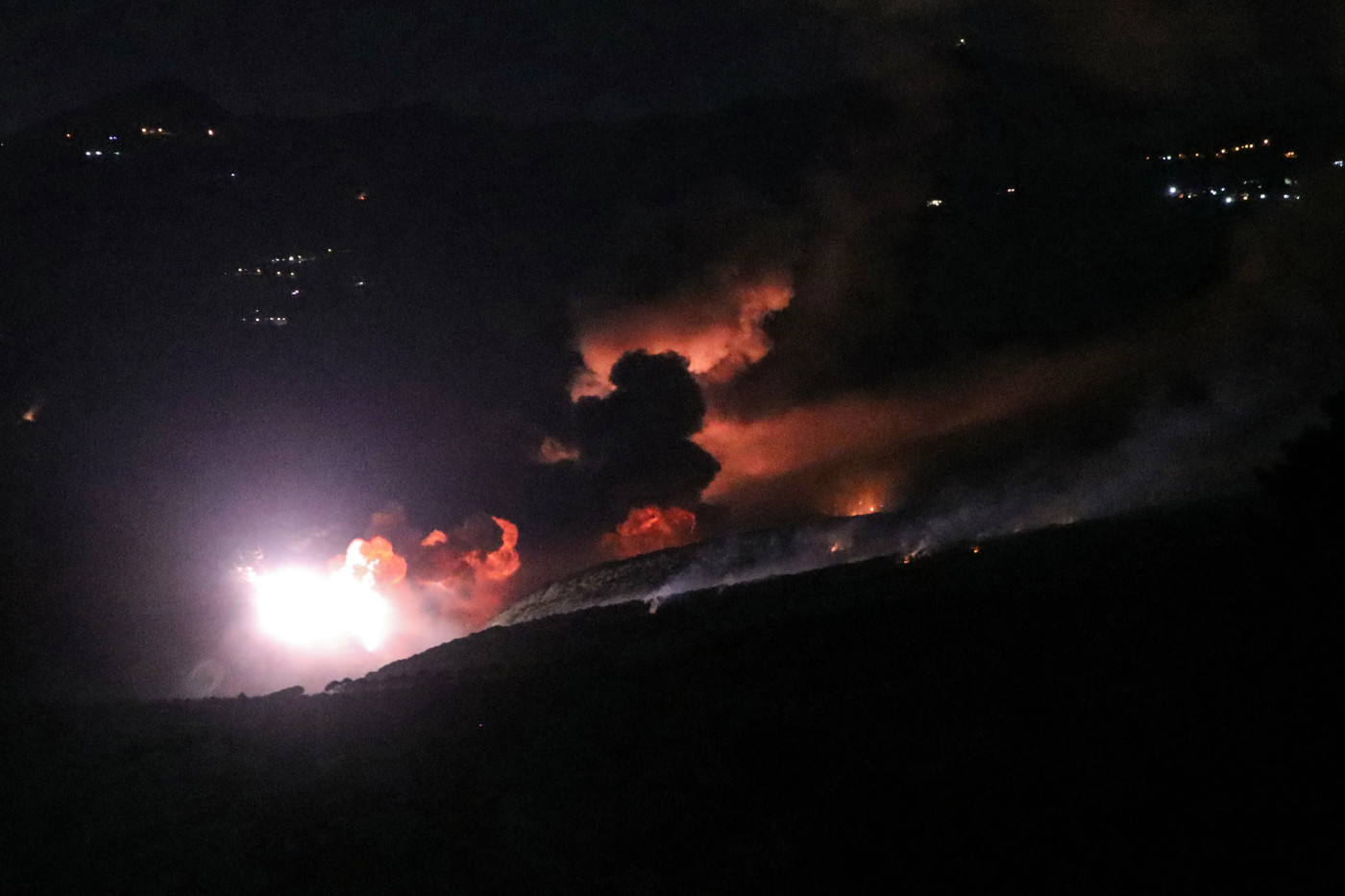Hamas Says Israel Failed to Hack Its Systems After Hezbollah Device Attacks
After two series of blasts in Lebanon and Syria were linked to exploding communications devices used by members of the Hezbollah movement, a senior Hamas official told Newsweek that Israel had repeatedly tried and failed to gain access to the Palestinian group's communication network.
"Since the beginning of the aggression and before that, Israel has been trying to penetrate the movement's communication networks," Hamas spokesperson and Political Bureau member Basem Naim told Newsweek, "but its failure so far to achieve its declared goals is evidence of its limited ability to cause harm."
Naim also said that "Hamas has different communications systems" than its Lebanese ally.
The Israel Defense Forces (IDF) declined Newsweek's request for comment.
Israel has neither confirmed nor denied responsibility for what appeared to be at least two waves of detonations across parts of Lebanon and Syria that struck pagers on Tuesday and handheld radios and solar equipment on Wednesday, killing an estimated 32 people and injuring thousands. Among the wounded and dead were scores of Hezbollah members, as well as civilians, including medical workers and children.
The apparent attacks came amid the war between Israel and Hamas in the Gaza Strip that is nearing its one-year mark, as well as violent clashes between the IDF and Hezbollah along the Israel-Lebanon border. Israel has threatened to conduct a ground offensive into Lebanon if Hezbollah did not withdraw from the border.
In a televised address delivered Thursday, Hezbollah Secretary-General Hassan Nasrallah vowed "a crushing response from the Axis of Response," which includes Hezbollah and other Iran-aligned groups in the region, to what he called a "major terrorist operation" launched by Israel. He dared Israeli Prime Minister Benjamin Netanyahu to launch a war on Lebanese soil.
In addition to conducting conventional military operations, Israel has a long history of launching covert operations against foes, including acts of sabotage and assassination behind enemy lines. In 1996, lead Hamas bombmaker Yahya Ayyash was killed in Gaza by an explosive device hidden by Israeli Shin Bet agents in his cellphone.
In a more recent event still shrouded in mystery, Hamas Political Bureau chief Ismail Haniyeh was killed in late July when an explosion tore through the room in which he was staying in the Iranian capital of Tehran. As with the equipment blasts in Lebanon and Syria, the assassination was widely attributed to Israel, though the IDF has declined comment.
The IDF has also claimed to have intercepted the communications of Palestinian officials and civilians throughout the ongoing conflict in Gaza, including a purported conversation between Hamas operatives in the wake of a deadly hospital blast last October.
Hamas has also claimed to have actively disrupted Israeli infiltration attempts. In a video published Thursday by the group's military wing, the Al-Qassam Brigades, operatives alleged to have captured an agent tasked with sabotaging Hamas' rocket program on behalf of Israel and to have subsequently recruited the individual to deceive Israeli intelligence.
Weeks after the war began after Hamas launched a massive surprise attack on Israel on October 7, 2023, CNN cited two unnamed sources saying that a small cell of group members communicated via hardwired phone lines running through Gaza's vast underground tunnel system to plan the surprise assault. A similar system was described by unnamed sources cited by Asharq Alawsat in January.
On Tuesday, the Wall Street Journal reported that Haniyeh's successor, former Hamas Gaza chief Yahya Sinwar, has relied on a sophisticated system of codes, couriers and other low-tech methods to avoid electronic detection as he remains the most senior group official to survive the conflict.
While Hamas' expansive subterranean network has long been known to Israeli officials, who often dub it the "Gaza metro," its extent and resiliency has surprised even IDF engineers following the launch of ground operations last year. Israeli troops continue to discover purported tunnels shafts, including those said to be present along the captured Philadelphi Corridor that runs between along the Egypt-Gaza border.
Netanyahu's determination to maintain an Israeli presence along this route has emerged as one of several key sticking points in the ongoing attempts to secure a U.S.-backed ceasefire deal. Officials from Israel and Hamas have accused one other of deliberately standing in the way of an agreement, while the U.S. and mediators Egypt and Qatar have called on both sides to demonstrate greater will to achieve a breakthrough.
This is a developing news story. More information will be added as it becomes available.
Disclaimer: The copyright of this article belongs to the original author. Reposting this article is solely for the purpose of information dissemination and does not constitute any investment advice. If there is any infringement, please contact us immediately. We will make corrections or deletions as necessary. Thank you.



